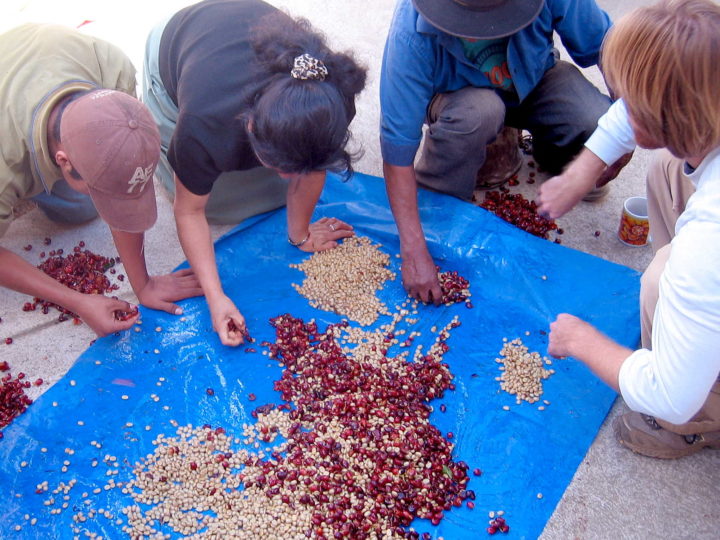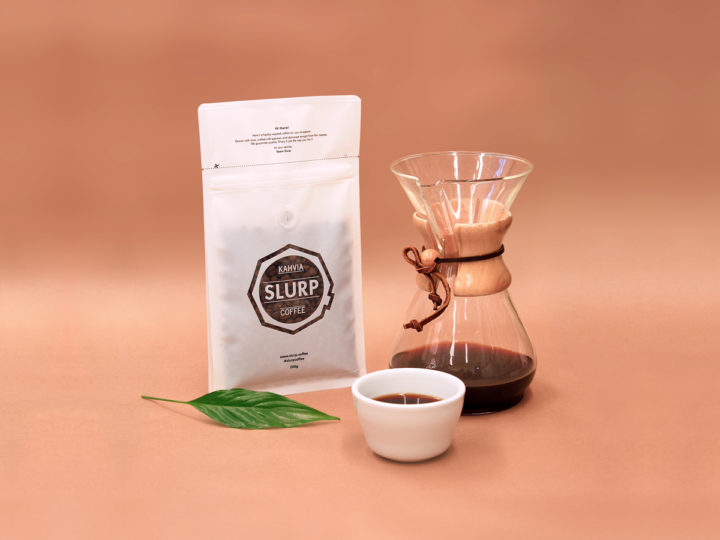What’s happening in the coffee business in 2024?
We took a dive into the future trends and shifts in the coffee industry that can be expected to become increasingly visible this year.
Coffee lovers have been able to see the impact of sustainable development in coffee business for some time now. Interest in high quality specialty coffee and the origin of coffee have increased and a wide range of plant-based alternatives have emerged to compete with milk. Processing methods have diversified, and many households are now using other, more experimental extraction equipment in addition to the traditional filter coffee maker, and knowledge of these has also increased. Below we have compiled a list of the most interesting trends that are predicted by some sources to have the greatest impact on the world of coffee in 2024 – and beyond!
Cold brew – new inspiration for cold extraction
Cold brew is made by steeping coffee grounds in cold water for a long time, resulting in an easy-to-use coffee concentrate. The process gives the coffee a great taste – smooth, less acidic and naturally sweet. Ready-to-drink cold brew can also be found on cold shelves around grocery stores, confirming that its popularity and demand is on the rise. While there is nothing particularly new about cold brew, its brewing methods are evolving towards fruit and spice extracts and nitro-infusion extraction. Brands experimenting with fun flavours and innovative production methods can be found in shops and cafés.
Bringing café performance to your home kitchen
For many coffee drinkers and coffee entrepreneurs, aesthetics is a key part of the coffee experience. For many, this means stylish home espresso machines, beautiful mugs and syrups or utensils to suit their taste and the thoughtful presentation of these. When you strive to bring the performance of a coffee shop into your home, you are easily creating a beautiful coffee shop aesthetic and atmosphere with coffee at the centre of it all. As more and more people bring espresso machines and experimental coffee accessories into their homes, there are also more ways to make a variety of coffee cocktails, which has also been growing in popularity in recent years.
Alternatives to milk
One of the biggest trends in the coffee industry is the introduction of plant-based milks. Oat, almond, coconut, cashew and pea-based milks are in endless supply, whereas only a decade ago, soy drinks were the only substitute for traditional milk in almost all places. In the past, plant-based milk alternatives were considered to be the preferred choice to avoid dairy products due to allergies or hypersensitivities, but today more and more coffee drinkers are choosing plant-based alternatives for their taste – not forgetting ethical reasons. In the past, it was also more difficult to find oat, almond and soya milk suitable for foaming, but it seems that these special plant-based milks are becoming more and more available.
Decaf in my cup
Health concerns and an increased understanding of the importance of sleep quality are among the many reasons for the growing popularity of decaffeinated coffee. Indeed, the popularity and sales of decaffeinated coffee have been growing steadily since 2017. In recent years, the availability of quality decaffeinated coffee alternatives has increased, with a greater emphasis on preserving the flavour and characteristics of the beans during the decaffeination process. This has contributed to a more positive perception of decaffeinated coffee. Not surprisingly, as there are more and more quality decaffeinated alternatives on the market that you might not at first sip suspect are lacking the stimulating ingredient.
Experimentality – taste, origin, varieties
The coffee world has expanded in recent years, thanks to new processing methods and a wider market. The origins of coffee have become more diverse, and there are certainly more and more rare origins on the way. There is also interest in new processing techniques, such as anaerobic processing, which can be used to extract the best possible flavour also from less appreciated beans and varieties. In the past, Robusta beans were considered to be of lower quality and best suited for instant coffee. Arabica beans, on the other hand, are more appreciated for their flavour. Now, with coffee rust and other effects of climate change threatening some Arabica bean growers in certain regions, more resistant Robusta coffees are increasingly coming to the fore. This trend may help open up new and interesting sources of green coffee for small roasters.
Honourable mention for coffee orders
In our busy lives, comfort and convenience are key. Coffee subscriptions are fast becoming a favourite way for coffee lovers everywhere to ensure that their favourite beans are conveniently delivered straight to their mailbox.
Comments (0)
Leave a reply
You must be logged in to post a comment.




